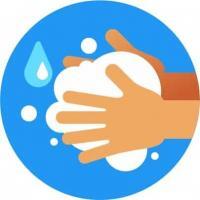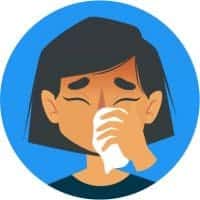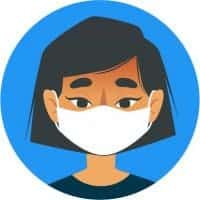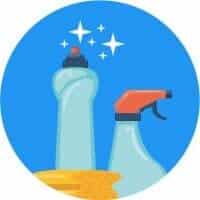Here is a quick guide sourced from the CDC for you and your family to use.
Do You Know How COVID-19 Spreads?

- As of today (3/19/2020) no vaccine to prevent coronavirus disease 2019 (COVID-19) exists.
- Best way to prevent illness: Avoid being exposed to this virus
- The virus is known to spread chiefly from person-to-person.
- Who are within 6 feet of each other in close contact.
- Through respiratory droplets from when an infected person coughs or sneezes.
- Droplets can land in the mouth, noses, and possibly be inhaled in the lungs.
What Steps to Take to Protect Yourself

Wash and sanitize your hands often
- Wash your hands for 20 seconds with soap after you have been in a public place. If you have coughed, sneezed, or blown your nose, wash your hands.
- Use hand sanitizer that contains at least 60% alcohol and rub your hands covering all surfaces until dry when soap is not an option.
- Do not touch your eyes, nose, and mouth with unwashed hands.

Avoid close proximity to others
- Avoid close contact with sick people.
- Do not shake hands or hug others.
- Distance yourself from other people if COVID-19 is spreading in your town or neighborhood. This is especially true for higher risk seniors in our community. community.
Be Mindful of Protecting Others

If you are sick then stay home
- Except to go get medical care, stay home if you are sick, and contagious to others.

If you cough or sneeze cover it up
- Use the inside of your elbow or cover your nose and mouth with a tissue when you cough or sneeze.
- Discard used tissues immediately in the trash.
- Wash your hands with soap and water for at least 20 seconds right away. Clean your hands with a hand sanitizer that contains at least 60% alcohol immediately if not soap is available.

Use a facemask if you are sick
- If you are ill: Wear a facemask when you leave your home or when you are around other people. Insist those caring for you also wear a mask to protect themselves as well.
- If facemask makes it hard for you to breath then cover your coughs and sneezes as best you can.
- Face Masks are in short supply and should be reserved for caregivers. If you are not ill then you don’t need to wear one. If you are around the sick, then you must wear a facemask.

Home disinfecting and cleaning
- Clean AND disinfect high touch surfaces daily. This includes tables, doorknobs, light switches, countertops, handles, desks, phones, keyboards, toilets, faucets, and sinks.
- IUse detergent or soap and water prior to disinfection if surfaces are dirty.
How to disinfect:
EPA-registered household disinfectants that are commonly used will work. Use a disinfectant that is appropriate for the surface.
Some options:
Source:https://www.cdc.gov/coronavirus/
- Diluting your household bleach.
To make a bleach solution, mix:- 5 tablespoons (1/3rd cup) bleach per gallon of water
OR - 4 teaspoons bleach per quart of water
- 5 tablespoons (1/3rd cup) bleach per gallon of water
- Follow manufacturer’s instructions for application and proper ventilation. Check to ensure the product is not past its expiration date. Never mix household bleach with ammonia or any other cleanser. Unexpired household bleach will be effective against coronaviruses when properly diluted.
- Alcohol solutions.
Ensure solution has at least 70% alcohol. - Other common EPA-registered household disinfectants.
Products with EPA-approved emerging viral pathogens - claims are expected to be effective against COVID-19 based on data for harder to kill viruses. Follow the manufacturer’s instructions for all cleaning and disinfection products (e.g., concentration, application method and contact time, etc.).

